Forest Honey I Multifloral
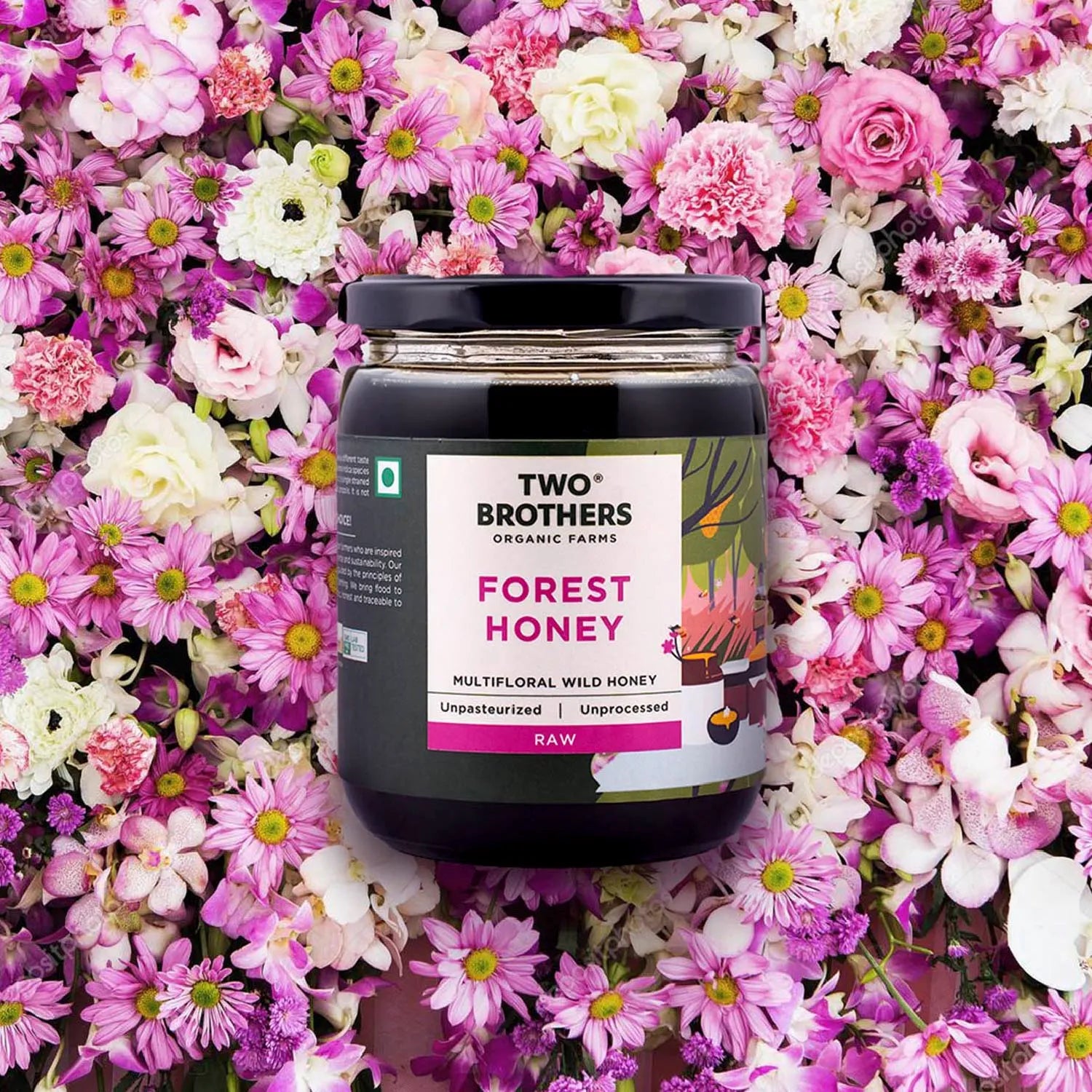
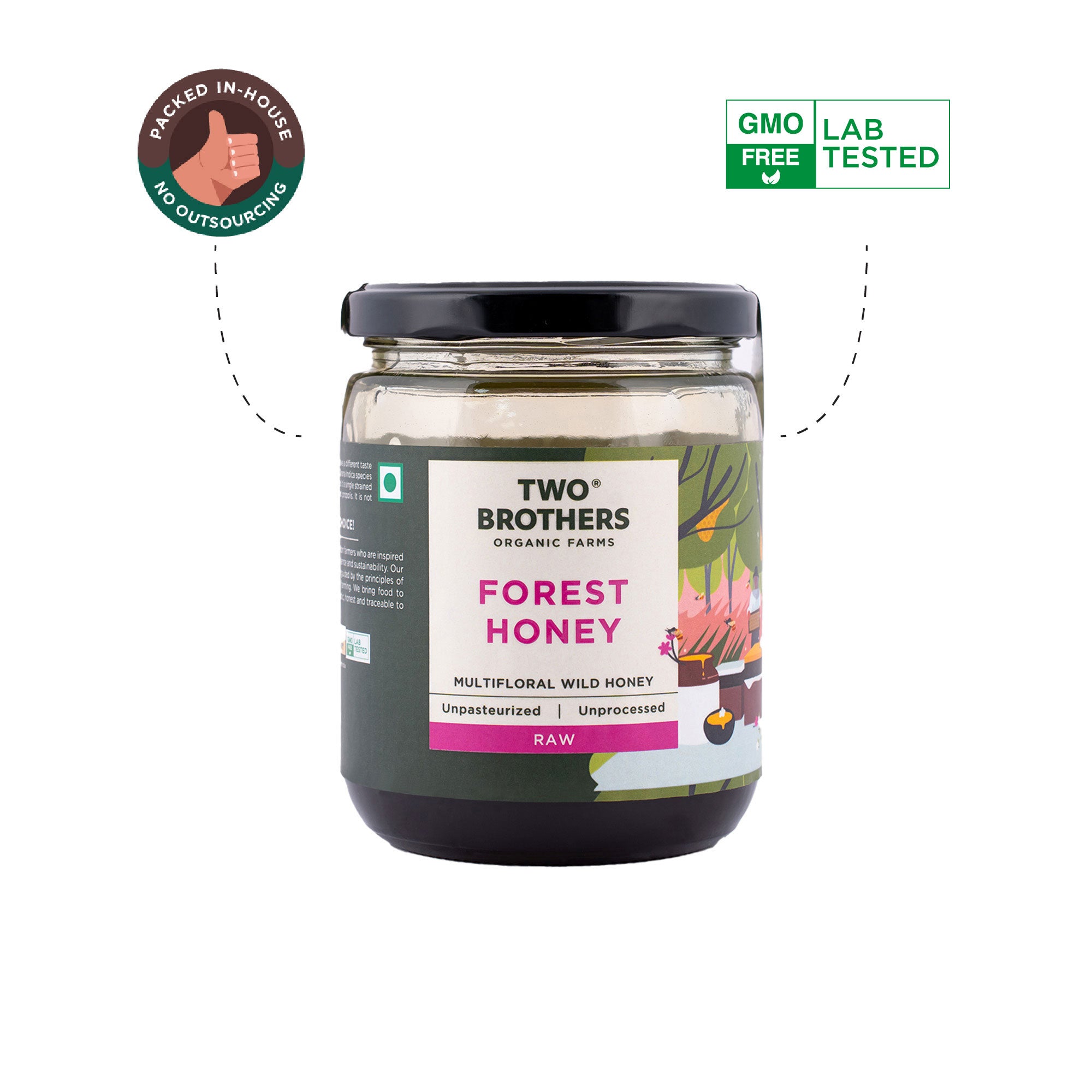
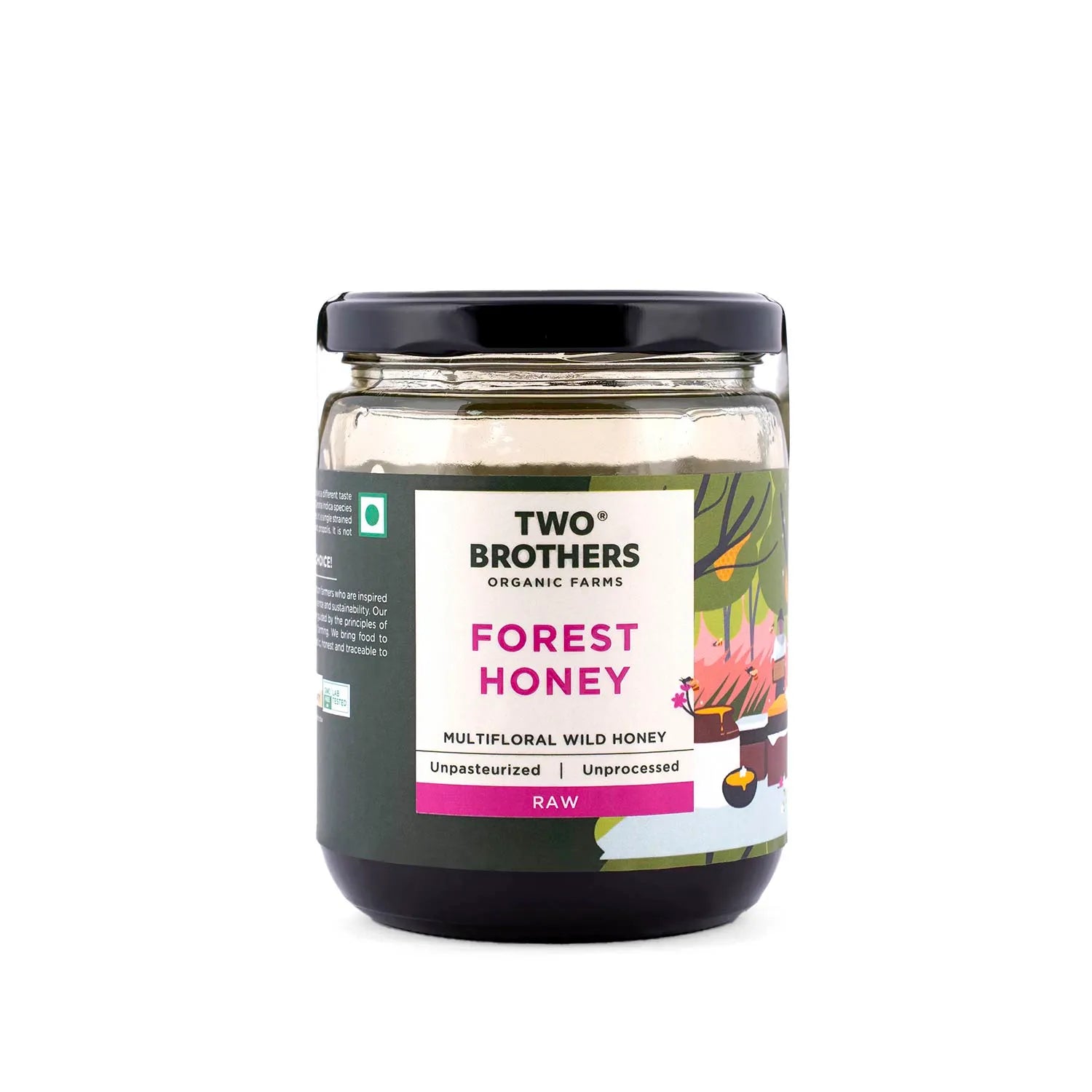
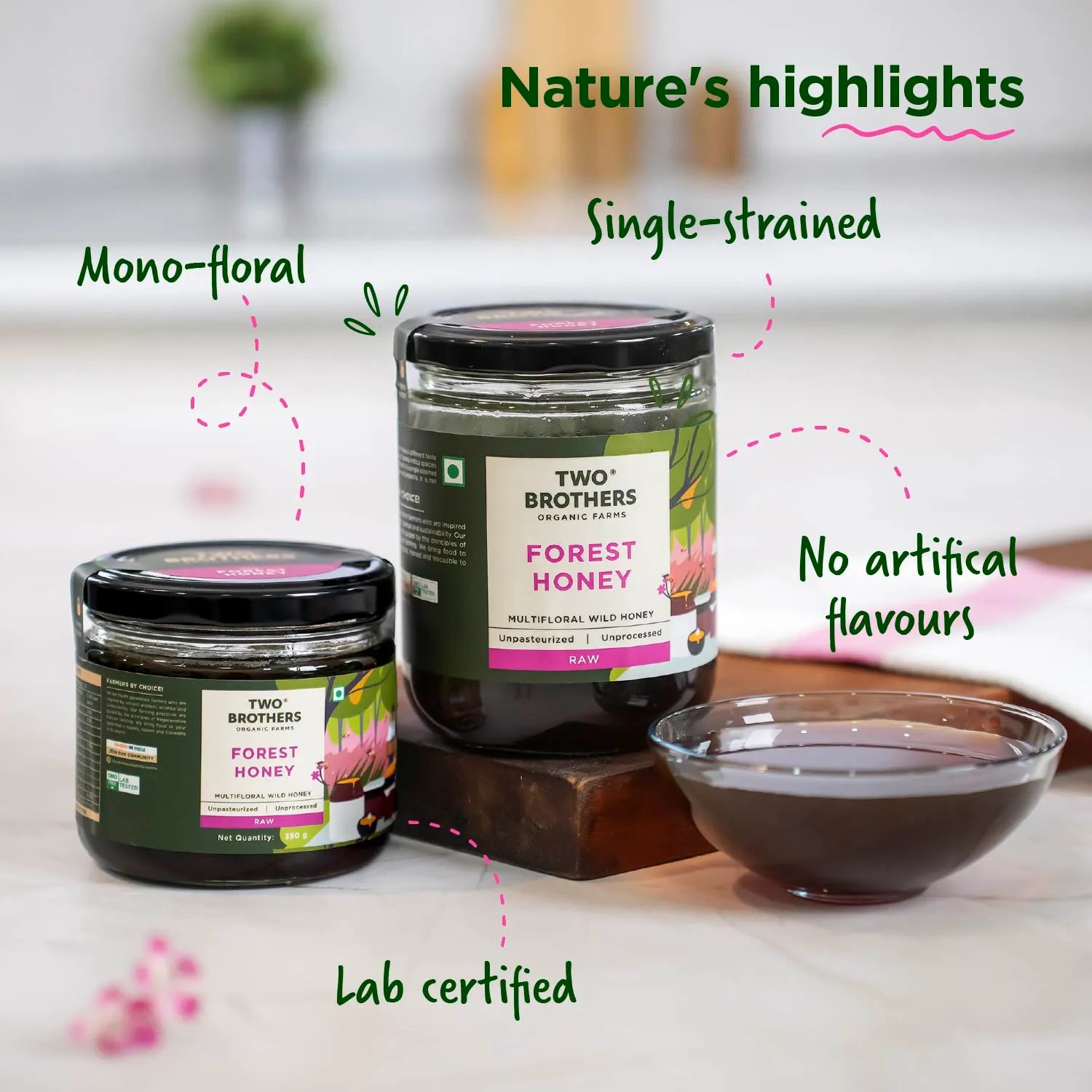
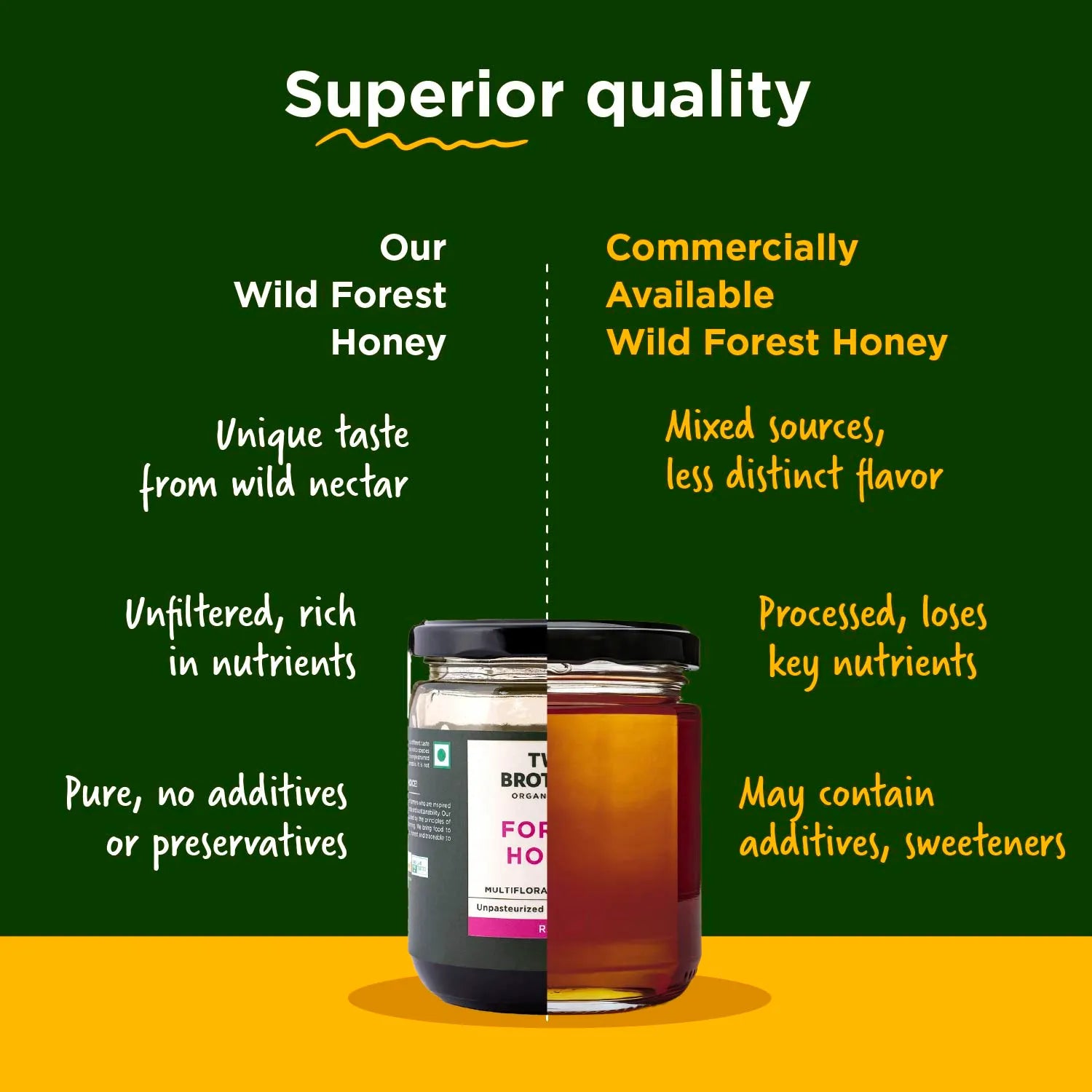
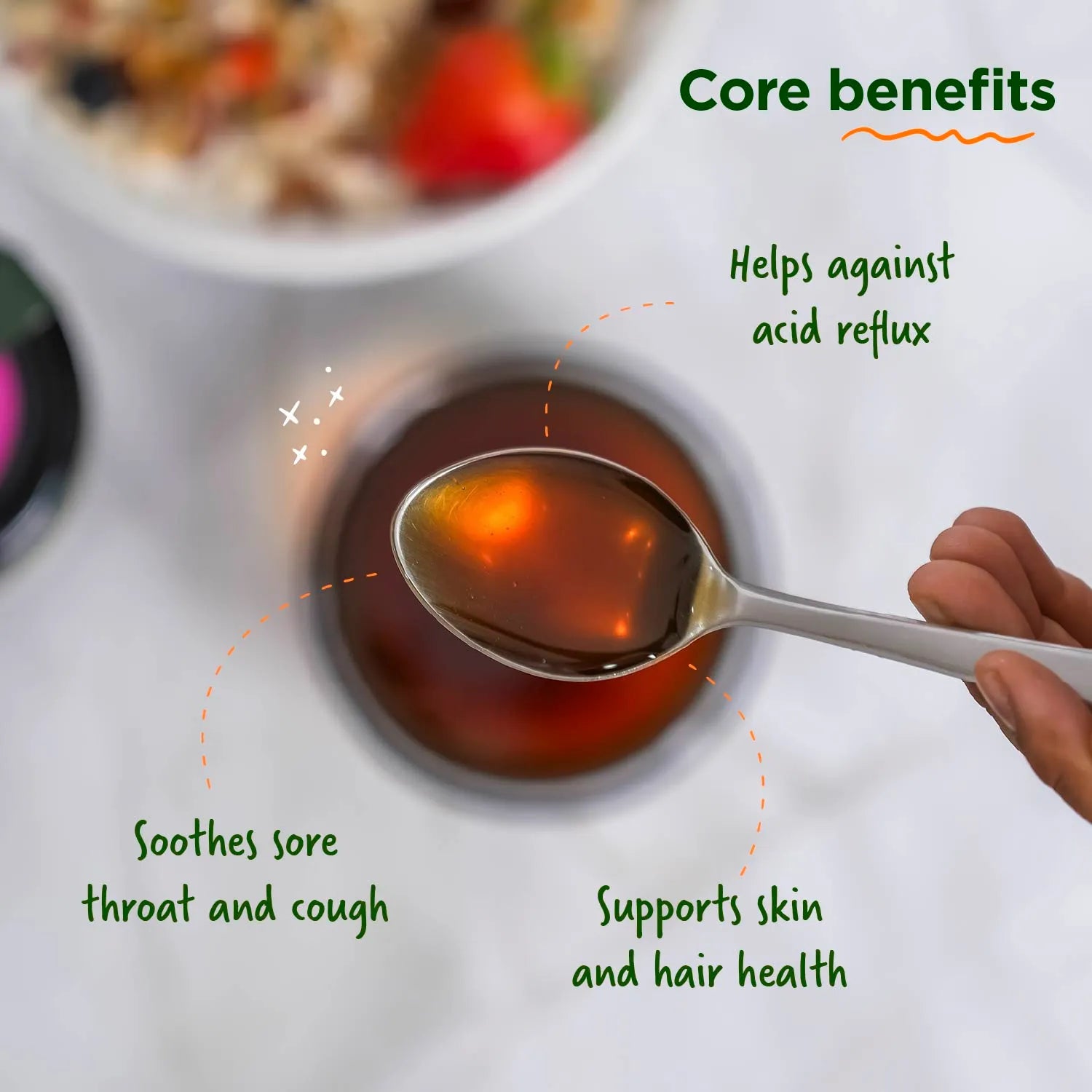
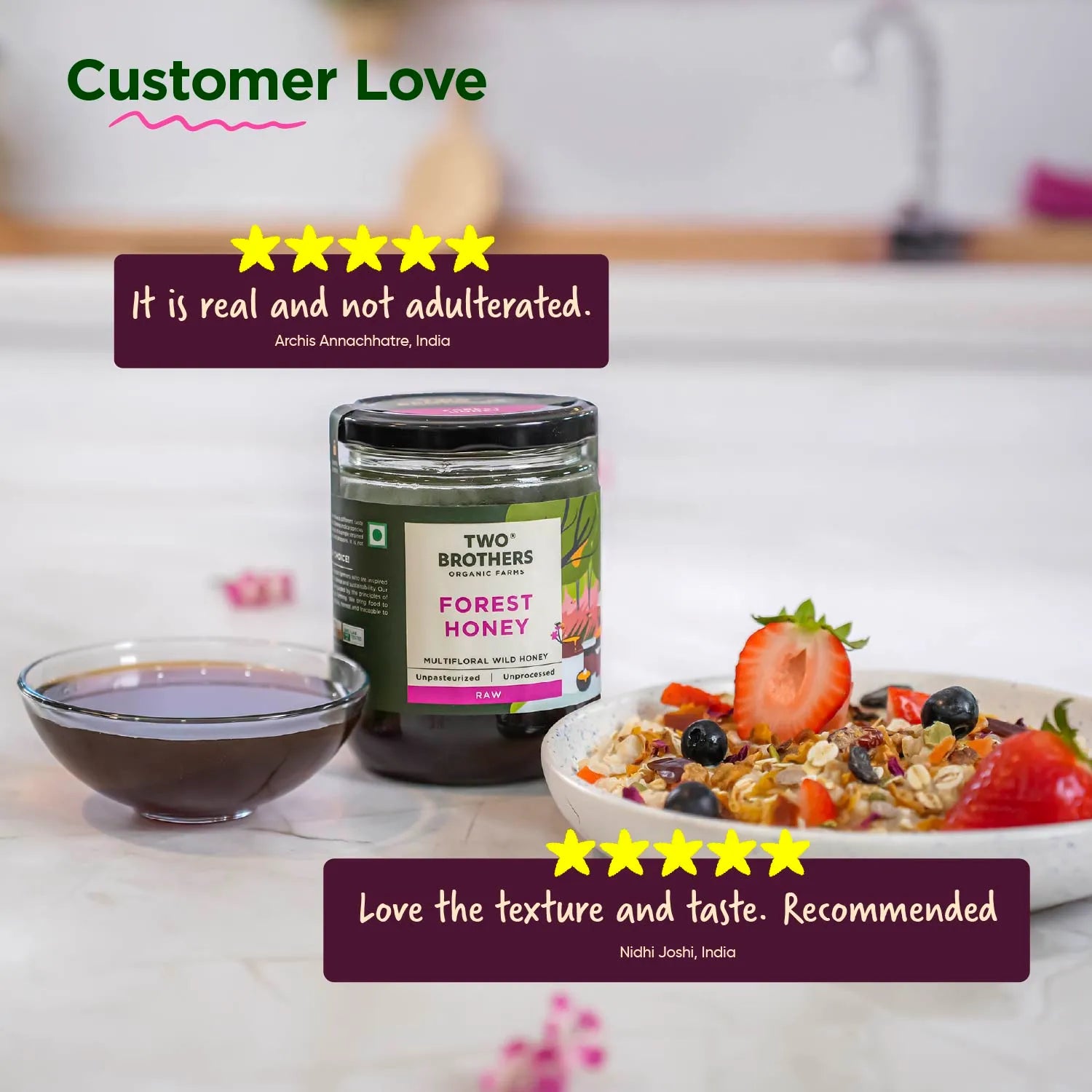


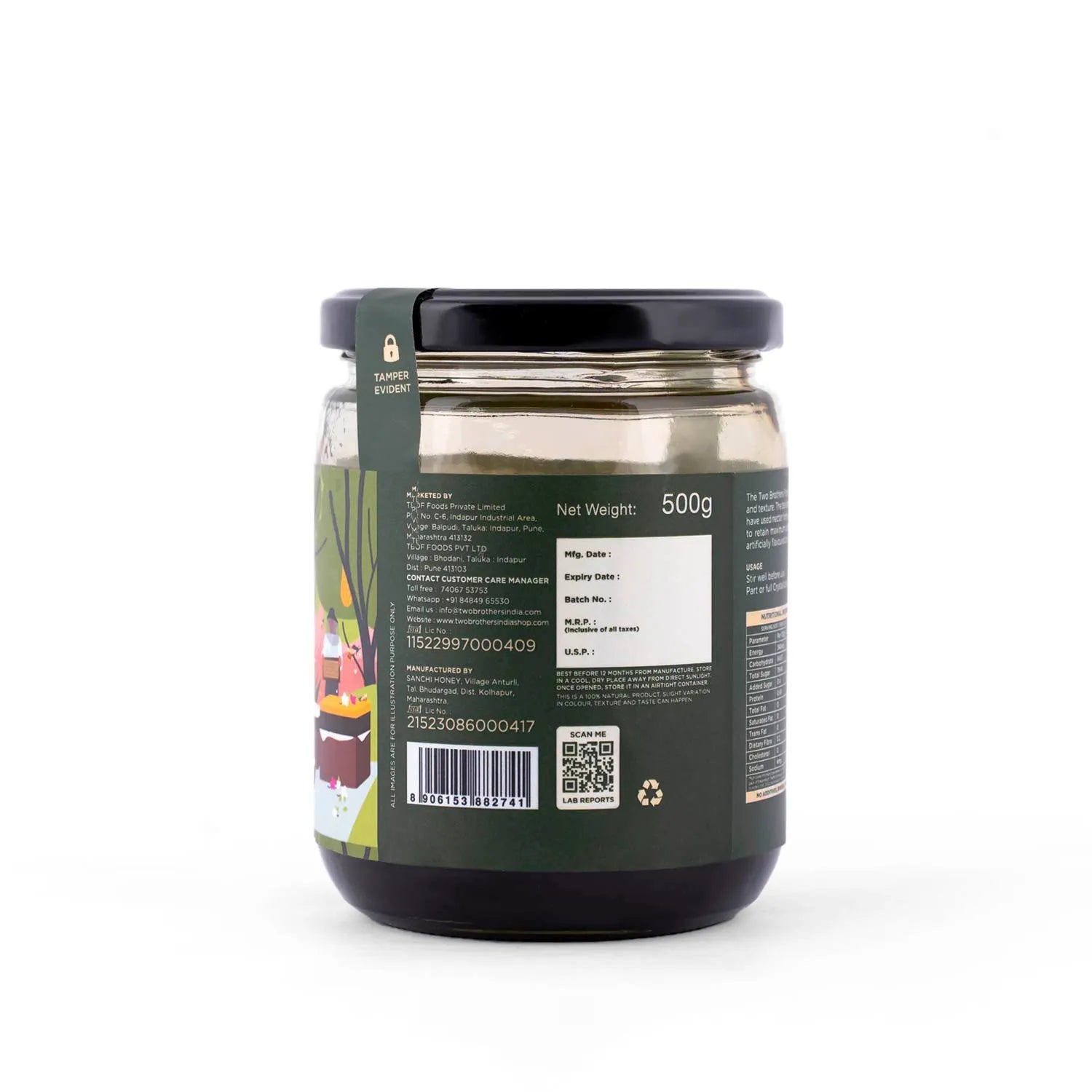
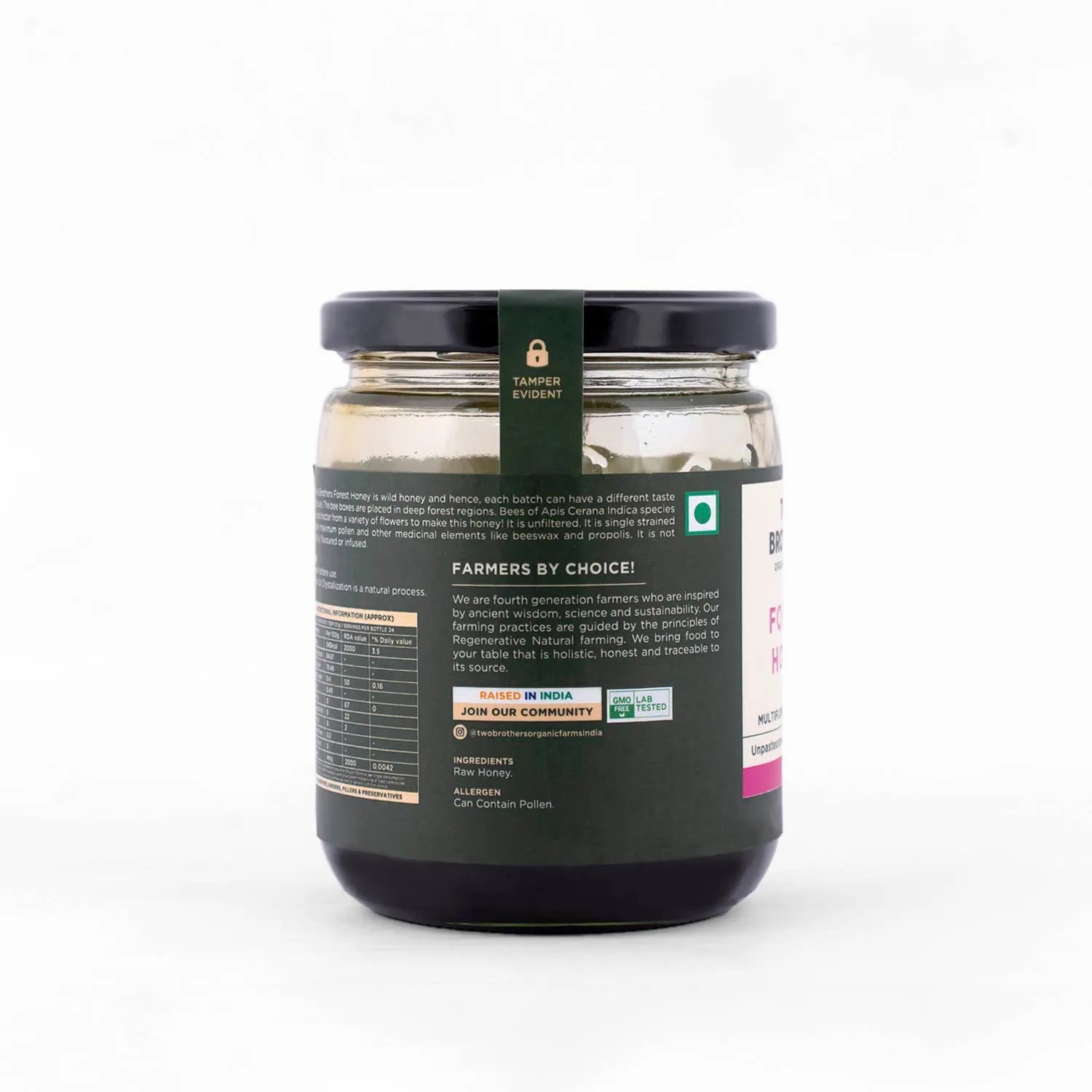
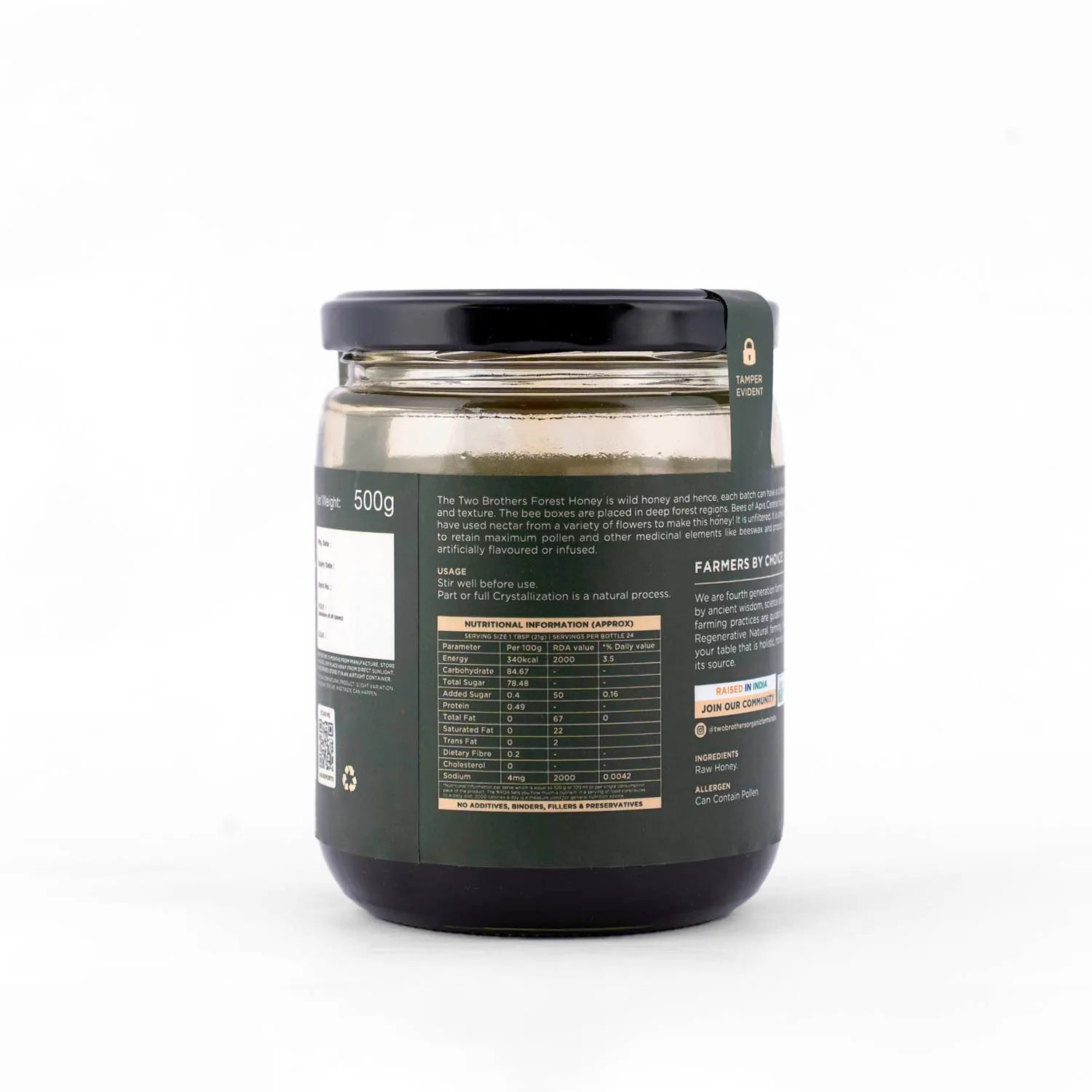
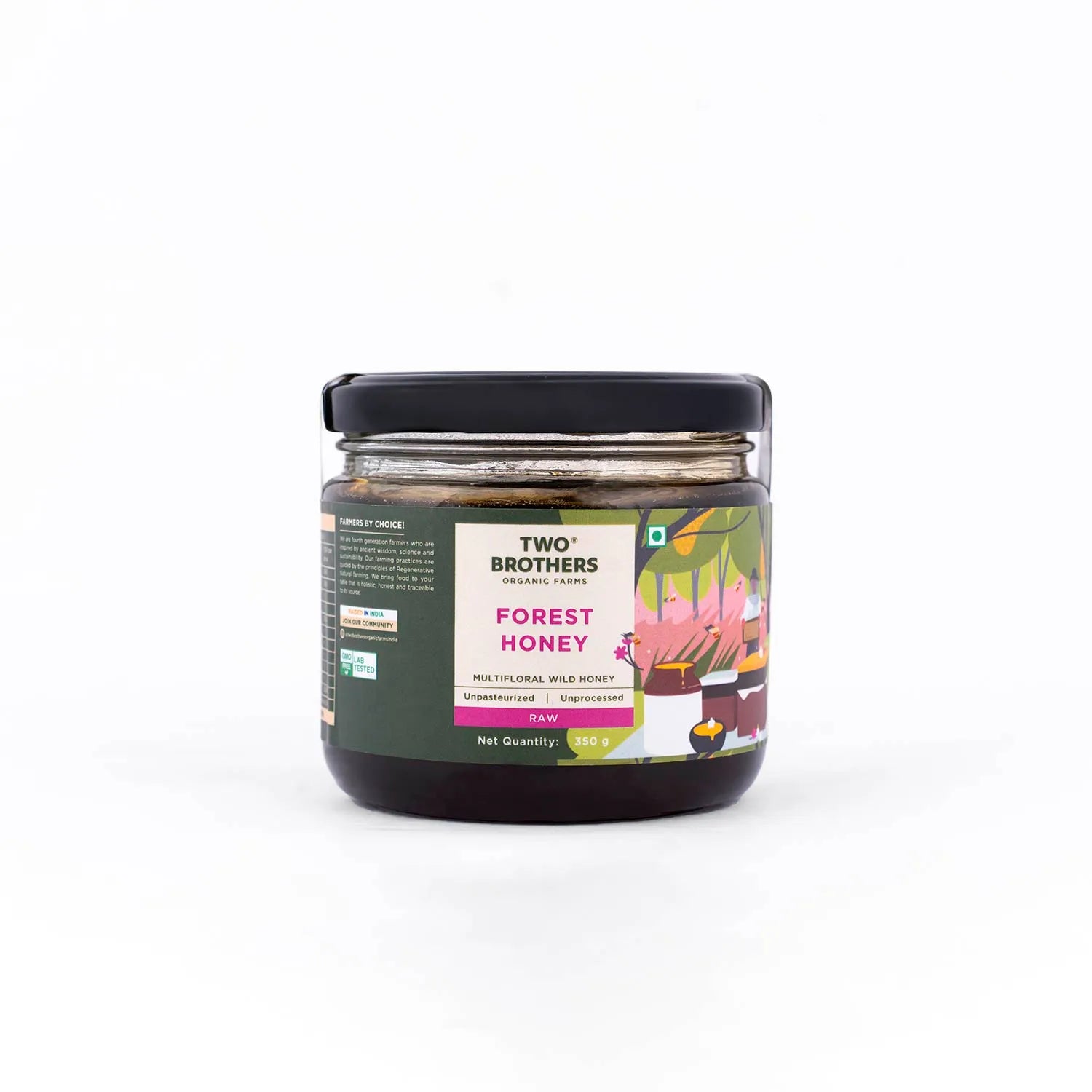
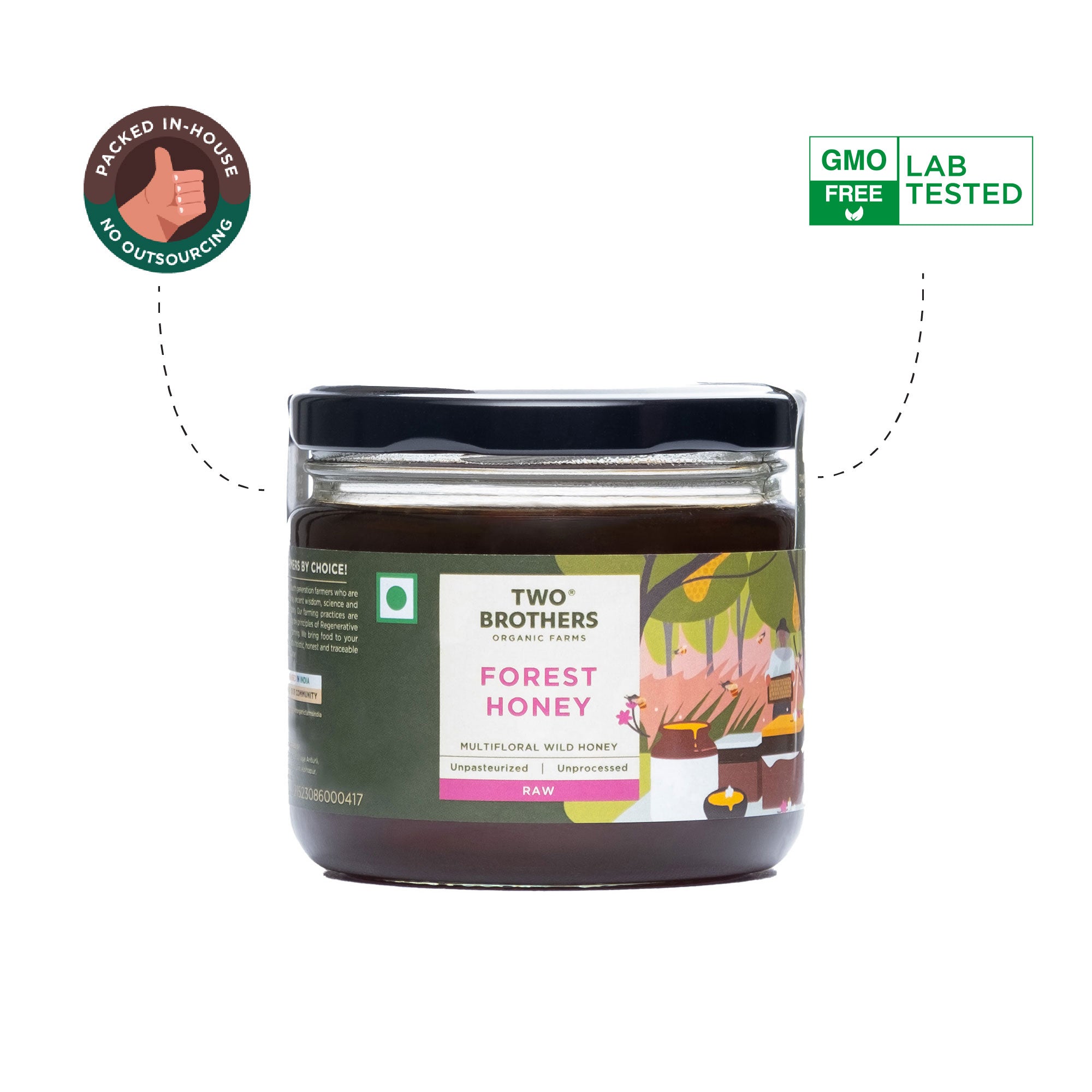
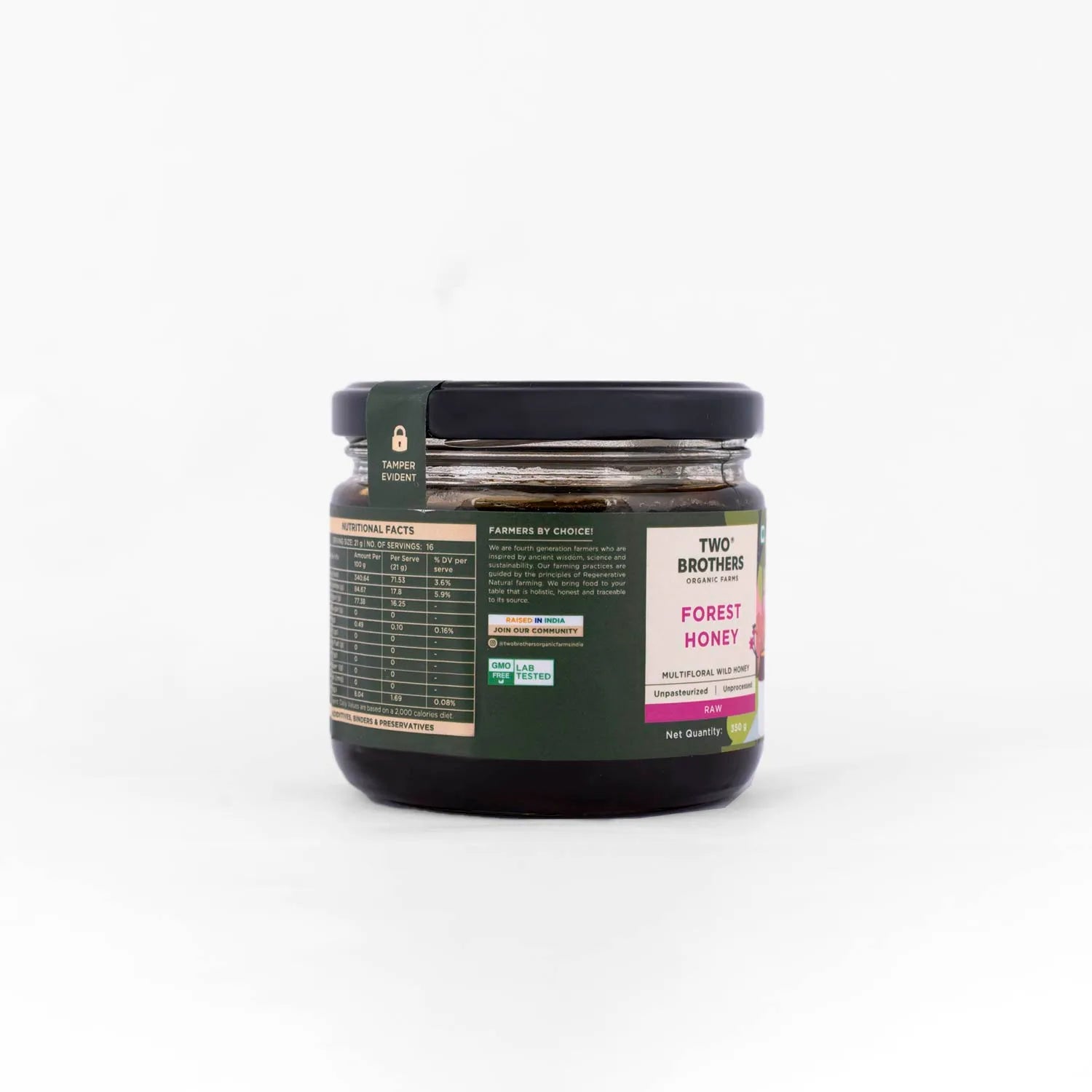
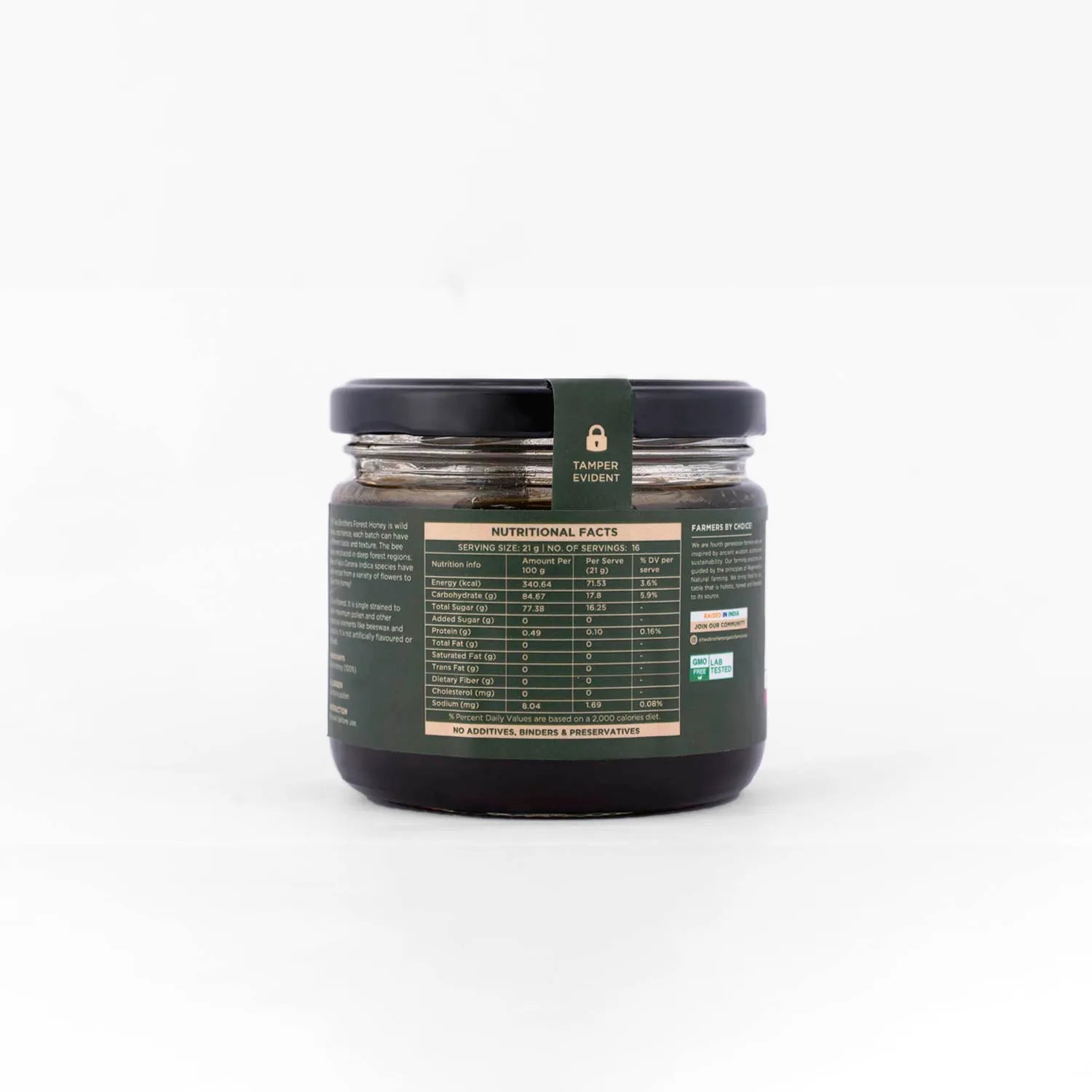
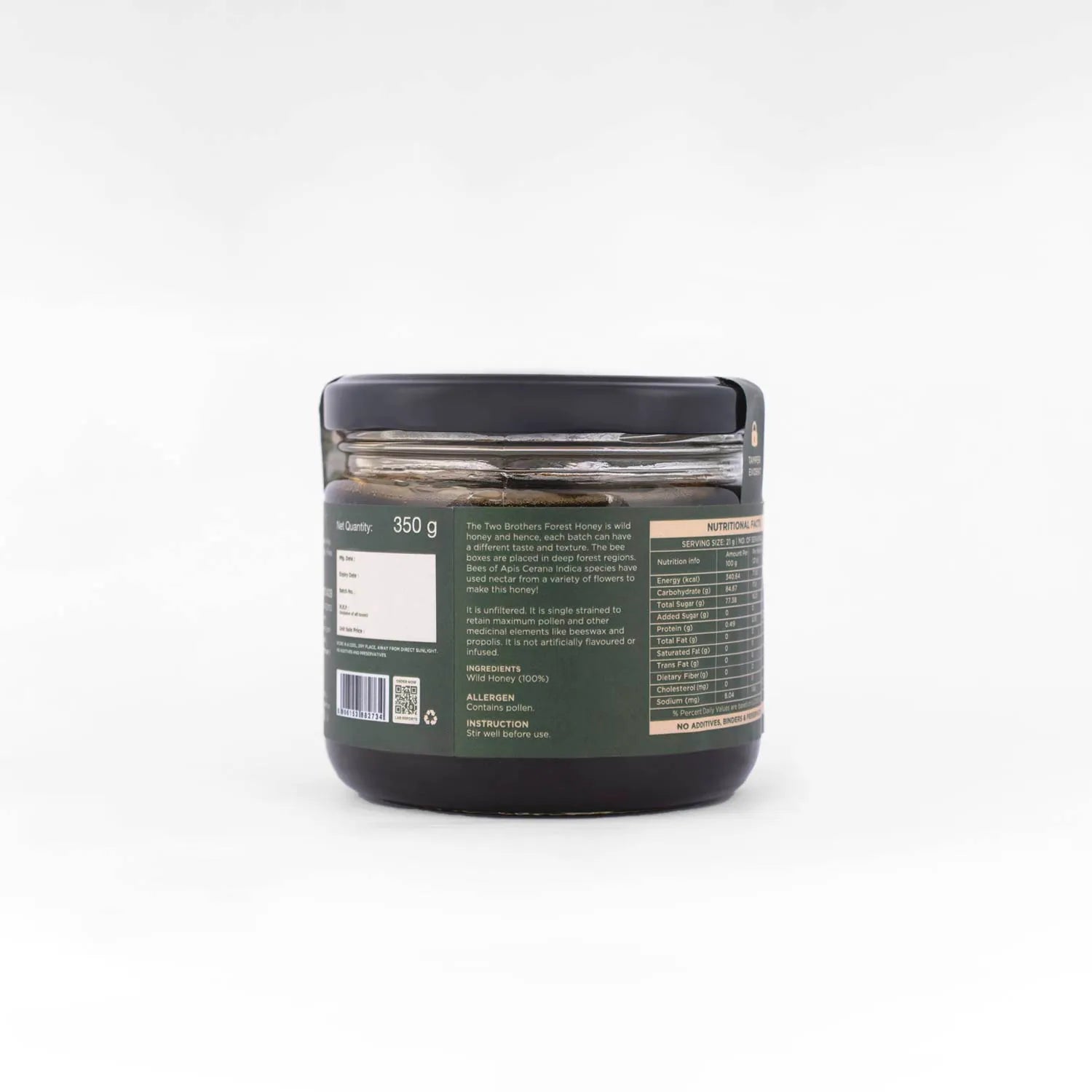
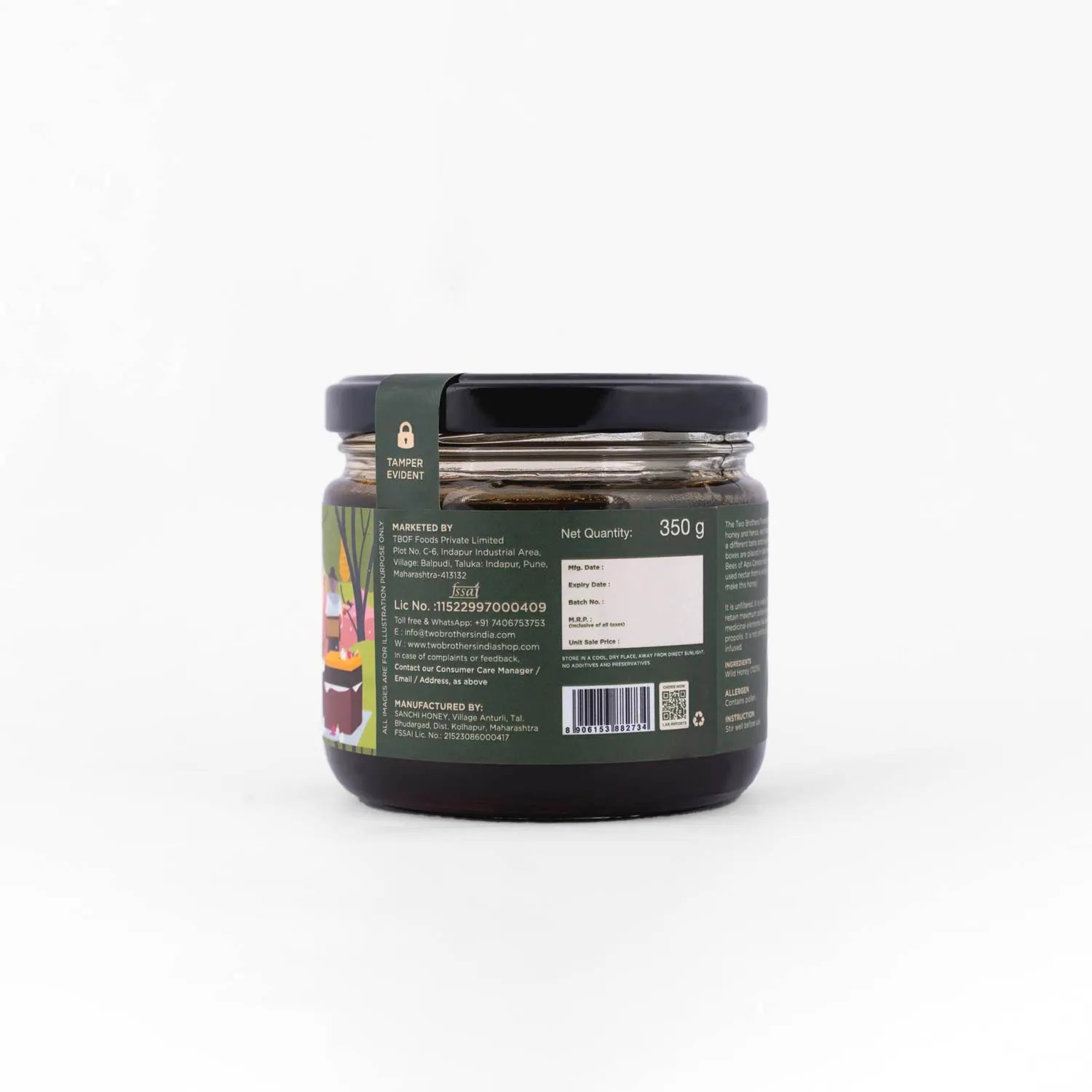
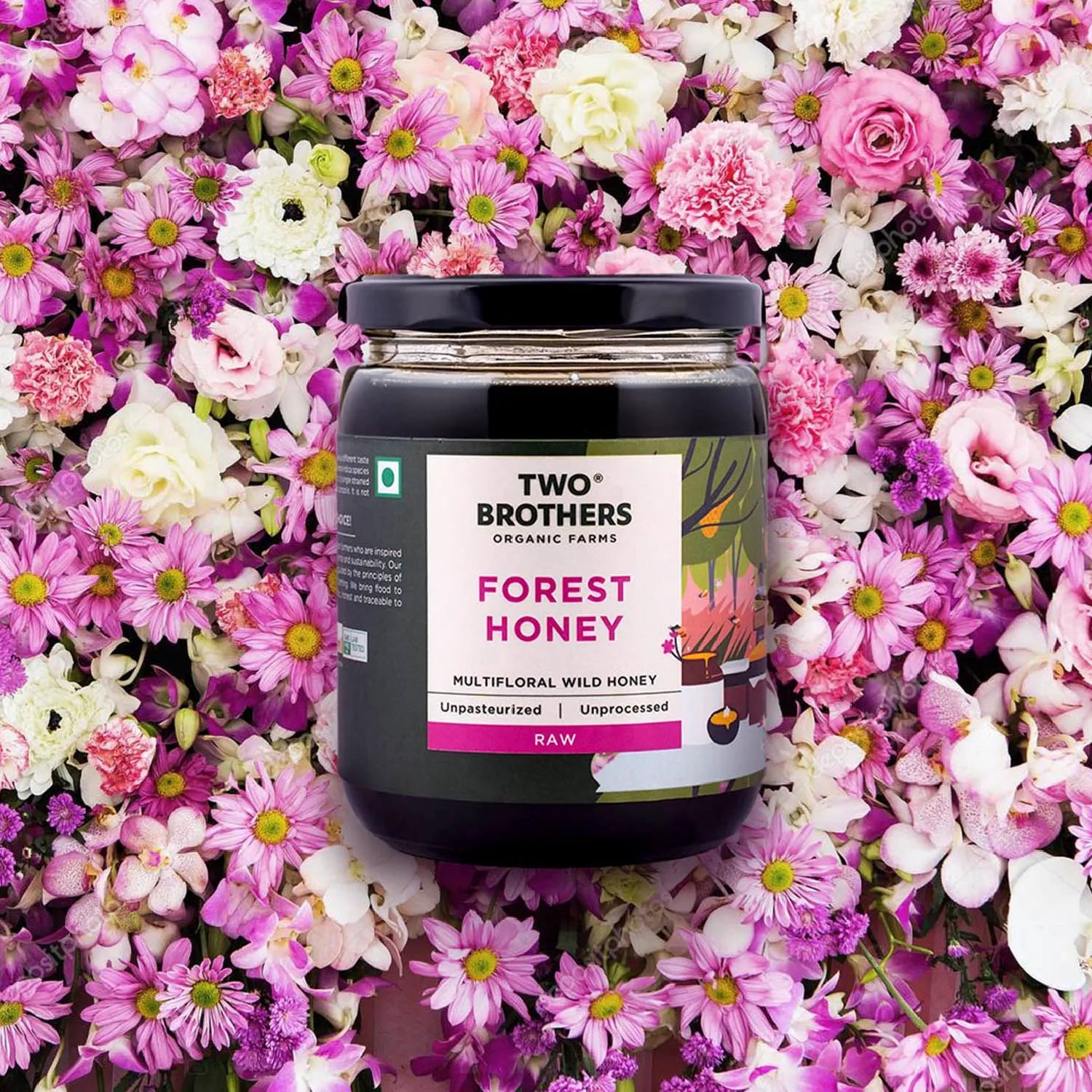
Forest Honey I Multifloral

Free shipping
above 1499
Secure
Payments
Farmers Empowerment
COD
available
Choose options
Description
The Two Brothers Forest Honey is wild honey and hence, each batch can have a different taste and texture. The bee boxes are placed in deep forest regions. Bees of Apis Cerana Indica species have used nectar from a variety of flowers to make this honey!
It is unfiltered. It is single strained to retain maximum pollen and other medicinal elements like beeswax and propolis. It is not artificially flavoured or infused.
TBOF Farmer Story:
We are working with a young lady tribal farmer, Vidya and her brother Dharamji who are practicing beekeeping in the forest belt of Bhudargad, Maharashtra.
The bee boxes are placed in deep regions of the Radhanagri forest.
This Wild Multifloral honey is made by the native Indian bee species Apis Cerana Indica (also known as Sateri Maashi locally) and not using the widely popular European imported bees, Apis Mellifera; widely popular and preferred by many beekeepers because the European Mellifera colonies can produce anywhere between 20-40 kg of honey per colony per year, while the yield is far lower with native Indian bees like the Cerana Indica; about 8-10 kg yield per colony per year.
It is best before 12 months from the date of packaging.











